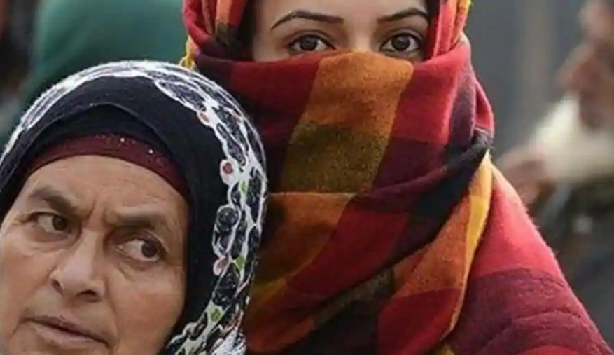(This is the third part of the special series on J and K. Here is link to first and second pieces).
The manner in which the Legislature of Jammu and Kashmir defined “Permanent Residents” (called State Subjects earlier) worked against Hindus and Sikhs arriving here from Pakistan in 1947. On the other hand, a perusal of various clauses clearly demonstrates that they were meant to help Muslims who had chosen Pakistan over India and had gone away.
Enabling Muslims and disabling non-Muslims can thus be a correct summing up of the intent of successive state governments. Under these laws, contained in Part III (Sections 6 to 10) of the Jammu and Kashmir Constitution, there were provisions enabling Muslims to return from Pakistan and become PRs. Some other provisions effectively disabled non-Muslims coming in from Pakistan from acquiring PR status.
As such, it can be said that the definitions of PRs were meant to welcome those Muslims who had gone away to Pakistan. Those who had chosen the new nation of Pakistan and preferred it over India.
Ironically, those non-Muslims who had chosen India, over Pakistan, and moved in to new territories in Jammu were barred from acquiring PR status. Let us do a bare reading of the Section 6 of Part III of J&K Constitution dealing with “Permanent Residents”.
It reads: 6. (1) Every person who is, or deemed to be, a citizen of India under the provisions of the Constitution of India, shall be a Permanent Resident of the State, if on the fourteenth day of May 1954-
(a) he was a State Subject of Class I or of Class II; or
(b) having lawfully acquired immovable property in the State, he has been ordinarily resident in the State for not less than ten years prior to that date.
(2) Any person who, before the fourteenth day of May 1954, was a State Subject of Class I or of Class II and who having migrated after the first day of March 1947, to the territory now included in Pakistan, returns to the State under a permit for re-settlement in the State or for permanent return issued by or under the authority of any law made by the State Legislature shall on such return be a permanent resident of the State.
(3) In this section, the expression “State Subject of Class I or II” shall have the same meaning as in the State Notification No I-L/84 dated the twentieth of April 1927, read with State Notification No 13/L dated the twenty-seventh June, 1932.
Incidentally, the State Subject definition of April 20, 1927, sanctioned by Maharaja Hari Singh, had four categories of State Subjects, Class I, II, III and IV. People coming into Jammu and Kashmir from outside the State could become Class III State Subjects after “10 years of continuous residence”.
In definition of PRs given by the Constituent Assembly of J&K, Class III of the Maharaja was deliberately omitted. This was meant to effectively bar any and every group or individuals from moving into J&K and become a PR.
Mark the wording of (2) of Section 6 of Part III of J&K Constitution. It takes cognisance of the fact that Muslims could have started going out of the State in March 1947. Accordingly, the cut-off date is set at March 1947.
In the same section, 6(1)(b), the cut-off date for non-Muslims is set at May 14, 1944. This means only those non-Muslims can become PRs who have come into J&K before this date. For Muslims, it is everyone who has gone out of the State after March 1947.
The new domicile laws, brought in May 2020, almost nine months after reorganization of J&K state into two Union Territories (UTs), are same for all. Everyone, irrespective of the religion he professes, or is an atheist even, is eligible for a domicile certificate of J&K if he/she has spent 15 years there.
There is no mention of different cut-off dates and conditions for Muslims and non-Muslims as was the case earlier. Any and all Indian citizens can henceforth become bonafide domiciles of J&K on the fulfillment of clause pertaining to 15 years’ residency.
Prescribed different yardsticks for different communities and adherents of different religions was what the Constitution of J&K did. The changes initiated on August 5, 2019, have provided a level playing field to everyone. The dice is no longer loaded in favour of, or against, the Muslims now. All Indian citizens are now truly equal and stand on the same footing as far as acquisition of domicile goes.
In the closing weeks of 2016, the Modi government had announced a financial aid of Rs 5.5 lakh to each of the 36,384 displaced families after their displacement from Pakistan Occupied Kashmir (POK), post-independence. Overall, a Rs 2,000 crore development package for displaced people of PoK was granted.
Sant Kumar Sharma, a seasoned journalist, is an authority on Jammu and Kashmir. Two of his books on Article 370 and Delimitation are already out. The third one on Indus Waters Treaty is with the publishers.
Sant began as a teacher but after six years, joined the Indian Express, Chandigarh in 1990, the year when terrorism was taking its first step in J & K and soon there would be exodus of lakhs of Kashmiri Pandits from the Valley. He subsequently worked for The Statesman, The Times of India and Star News among others. He is based in Jammu since May 2000.


